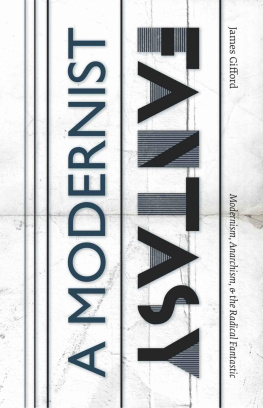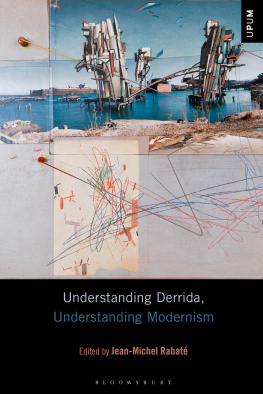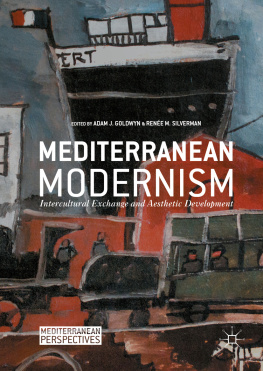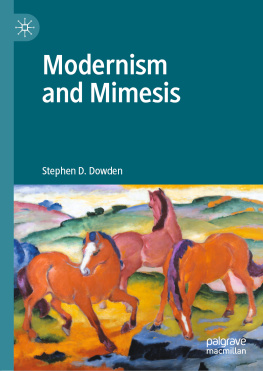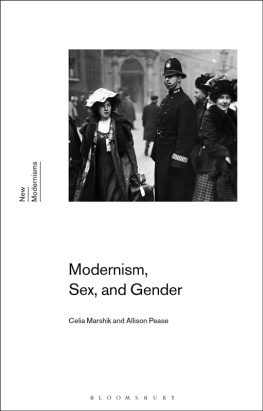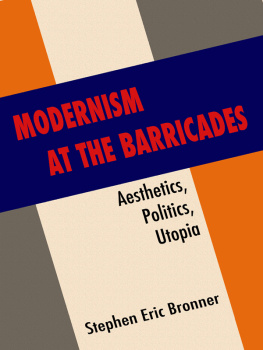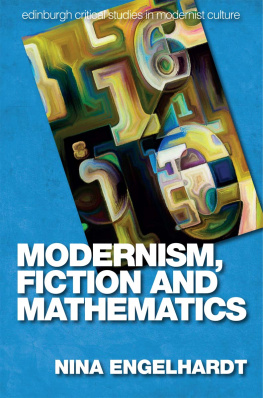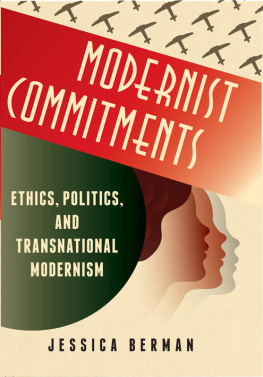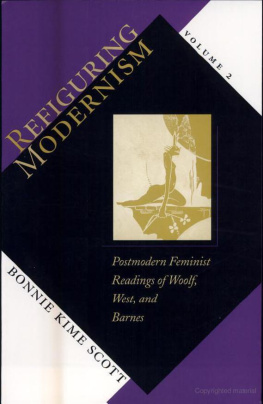Adam Meehan - Modernism and Subjectivity: How Modernist Fiction Invented the Postmodern Subject
Here you can read online Adam Meehan - Modernism and Subjectivity: How Modernist Fiction Invented the Postmodern Subject full text of the book (entire story) in english for free. Download pdf and epub, get meaning, cover and reviews about this ebook. year: 2020, publisher: LSU Press, genre: Romance novel. Description of the work, (preface) as well as reviews are available. Best literature library LitArk.com created for fans of good reading and offers a wide selection of genres:
Romance novel
Science fiction
Adventure
Detective
Science
History
Home and family
Prose
Art
Politics
Computer
Non-fiction
Religion
Business
Children
Humor
Choose a favorite category and find really read worthwhile books. Enjoy immersion in the world of imagination, feel the emotions of the characters or learn something new for yourself, make an fascinating discovery.

- Book:Modernism and Subjectivity: How Modernist Fiction Invented the Postmodern Subject
- Author:
- Publisher:LSU Press
- Genre:
- Year:2020
- Rating:5 / 5
- Favourites:Add to favourites
- Your mark:
- 100
- 1
- 2
- 3
- 4
- 5
Modernism and Subjectivity: How Modernist Fiction Invented the Postmodern Subject: summary, description and annotation
We offer to read an annotation, description, summary or preface (depends on what the author of the book "Modernism and Subjectivity: How Modernist Fiction Invented the Postmodern Subject" wrote himself). If you haven't found the necessary information about the book — write in the comments, we will try to find it.
Adam Meehan: author's other books
Who wrote Modernism and Subjectivity: How Modernist Fiction Invented the Postmodern Subject? Find out the surname, the name of the author of the book and a list of all author's works by series.
Modernism and Subjectivity: How Modernist Fiction Invented the Postmodern Subject — read online for free the complete book (whole text) full work
Below is the text of the book, divided by pages. System saving the place of the last page read, allows you to conveniently read the book "Modernism and Subjectivity: How Modernist Fiction Invented the Postmodern Subject" online for free, without having to search again every time where you left off. Put a bookmark, and you can go to the page where you finished reading at any time.
Font size:
Interval:
Bookmark:
MODERNISM AND SUBJECTIVITY
INTRODUCTION
The central argument of this book is that conceptions of subjectivity commonly attributed to postmodern theory had already been articulated in modernist fiction before 1945. This contention raises a number of questions, such as, Which conceptions of subjectivity are being considered? How does one define postmodern theory ? And why include only fiction, and not poetry, drama, or other artistic forms? These and other questions will be addressed below, but I would like to begin by confronting a perhaps more pressing concern: why publish a book about modernism and subjectivity now ? After all, according to some critics, subjectivity has been outstripped as a categorical descriptor. As far back as 1991, an essay collection coedited by Jean-Luc Nancy asked the question Who Comes After the Subject? Nancy asked readers to consider whether the critique or deconstruction of interiority, of self presence, of consciousness, of mastery, of the individual or collective property of an essence had simply obliterated its object [subjectivity] (4). He pointed out that the inaugurating decisions of contemporary thoughtwhether they took place under the sign of a break with metaphysics and its poorly pitched questions, under the sign of a deconstruction of this metaphysics, under that of a transference of the thinking of Being to the thinking of life, or of the Other, or of language, etc.have all involved putting subjectivity on trial (5). Indeed, since the turn of this century the emergence of new, reimagined, and/or reinvigorated disciplines like queer theory, disability studies, affect studies, cognitive studies, and environmental studies has meant a further pivot away from the broad-based theories of subjectivity that dominated the latter half of the twentieth century toward more individualized and politically inflected understandings of personal identity.
And yet we might point to a spring 2017 special issue of Cultural Critique entitled What Comes After the Subject? (a direct response to the collection mentioned above) as an indication that for all the effort to overthrow the subject, its specter still lingers. The editors write in their introduction that the renaissance of theories of subjectivityas exemplified by the work of Alain Badiou, Jacques Rancire, and Slavoj ieksuggests that at the very least the declaration of the subjects death was premature (Haines and Grattan 16). The persistence of subjectivity can be seen across disciplines, including philosophy, history, anthropology, sociology, and psychologyor, if one prefers, in what we have come to call critical theory , which incorporates elements of these and other disciplines. There is also an enduring interest among literary scholars in exploring representations of subjectivity, as seen in the recent work of Rene Dickinson, Susan Harrow, Josephine Park, Nancy Ruttenburg, Tamar Katz, and others. Although it is true that many scholars across the humanities have jettisoned subjectivity in favor of newer formulations, I contend that the time is ripe for a revisionary look at how notions of the subject evolved in twentieth-century literature and theoryand this is the task I undertake in this book.
After all, regardless of how we feel about the concept now, one can make a strong case that subjectivity was the defining intellectual preoccupation of the twentieth century. Consider that one of the major intellectual events to take place at the onset of the twentieth century was the publication of Sigmund Freuds groundbreaking The Interpretation of Dreams (1899), which brought the study of the unconscious mind into mainstream society. Shortly thereafter, in the sciences, Albert Einstein published On the Electrodynamics of Moving Bodies (1905), which outlined his special theory of relativity and showed that all observations are relative to ones frame of reference. In the arts, modernist literature was gaining momentum across Europe and postimpressionism was leading Virginia Woolf to famously write that on or about December 1910 [the month of the first postimpressionist exhibition] human character changed (Character in Fiction 421). In philosophy, the seminal nineteenth-century work of Kierkegaard and Nietzsche evolved into a fully articulated existentialism that peaked during and shortly after World War II. And this all in just the first half of the century. The second half saw the rise of postmodernism, which was driven by a prevailing skepticism toward grand narratives and claims of certainty or objectivity that even included for some a distrust of so-called scientific facts. In short, across the intellectual landscape of the twentieth century one finds a disparate but prevailing fixation upon the singularity of individual experience and the difficulty, if not impossibility, of ever transcending ones own subjective perception of the world. This preoccupation undoubtedly reaches its apex in the age of postmodernism.
As for the designation postmodern theory, I admit that it is not wholly satisfactory, but one struggles to find a more apposite way to encapsulate the outpouring of theoretical work across the humanities in the second half of the twentieth centurythat time now generally referred to as postmodern, though that descriptor itself brings along its own contentious history. In using the designation postmodern theory, I follow Steven Best and Douglas Kellner, who in their 1991 book of that name use the term to encompass not only theories of postmodernism as such, like those advanced by Jean-Francois Lyotard, David Harvey, or Fredric Jameson, but also the work of intellectuals across many disciplines that has been influential in forming the postmodern zeitgeist. These would include scholars of postcolonialism, gender studies, queer theory, poststructuralism, post- and neo-Marxism, psychoanalysis, and other adjacent fields. In short, postmodern theory is an inclusive, perhaps even vague term, but one that will nonetheless have a familiar ring for most anyone in the humanities. It is also useful for our context, in fact, because it is problematic, as the artificial barriers that have been erected between modernism and postmodernism are the essential targets of our critique.
We run into similar problems when we try to explain subjectivity . Most readers will know that subjectivity describes the state of being uniquely experienced by every individual, or subject. But like postmodernism, subjectivity is a fraught term with a complex history and scads of iterations. Peter Zima gives us a good sense of this problem in his book Subjectivity and Identity: Between Modernity and Postmodernity (2015): The greater the number of commentators who express their opinion on a given term, the greater the danger that the term will ultimately defy all attempts at definition. Subject is one such term whose vague, shifting character stems primarily from the academic division of labour, which endows this ambiguous signifier with a different meaning in each discipline: grammatical subject, legal subject, literary protagonist, or even the subject of history. It is immediately apparent that there are a number of different levels at play here (language, law, literature, history as world affairs) which are far from homogeneous (1).
Indeed, conceptions of subjectivity have been and continue to be heterogeneous, and so in using the term one assumes the inherent risk of lapsing into meaningless generality. Jonathan Re playfully acknowledges this fact when he writes that twentieth-century approaches to subjectivity are dominated by the anxiety not to be Descartes (206). This characterization certainly rings true as we consider how understandings of subjectivity evolved from a stable (Cartesian) self in the Victorian era, to a conflicted ego in the work of Freud, to a fragmented personality after World War II, to a linguistic construct in the latter decades of the twentieth century. This is, of course, only the broadest of outlines, and one that obviously ignores the nuances and complexities of how ideas about the subject cut across various contexts and disciplines, but it captures the basic structure of feeling, to borrow a phrase from Raymond Williams. However, as our argument must rest on something more solid than a structure of feeling, I would like to take a moment to explain why this book reduces this timeline even further by employing the terms modernism and postmodernism before describing its particular framing of subjectivity and explaining why it suits this project.
Next pageFont size:
Interval:
Bookmark:
Similar books «Modernism and Subjectivity: How Modernist Fiction Invented the Postmodern Subject»
Look at similar books to Modernism and Subjectivity: How Modernist Fiction Invented the Postmodern Subject. We have selected literature similar in name and meaning in the hope of providing readers with more options to find new, interesting, not yet read works.
Discussion, reviews of the book Modernism and Subjectivity: How Modernist Fiction Invented the Postmodern Subject and just readers' own opinions. Leave your comments, write what you think about the work, its meaning or the main characters. Specify what exactly you liked and what you didn't like, and why you think so.

